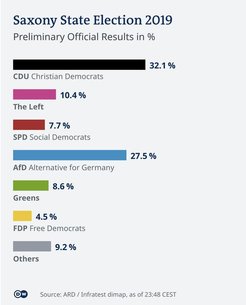Eurasia Needs A New Ostpolitik
Author: Chris Hann
The Chancellorship of Willy Brandt, which began fifty years ago, was marked by an impressive range of social democratic reforms. But even within a reunited Germany, Brandt is probably best remembered for his promotion of dialogue with the German Democratic Republic and for reconciliation with Poland, thereby stabilizing geopolitics and making a decisive contribution to the demise of the USSR and of the Warsaw Pact.
Willy Brandt’s mission was to heal the wounds of twentieth century European history. He lived just long enough to welcome German reunification. What would he say about the state of Europe and of the world thirty years later? NATO is doing very well, celebrating its 70th anniversary in a year in which new arms races are already a reality. President Trump stimulates the world’s largest military-industrial complex and urges his European allies to increase their defence spending accordingly. Even media in the West that are critical of Trump and NATO delight in demonizing the leader in the Kremlin. Western leaders invite German leaders but not President Putin to join in their commemorations of the 80th anniversary of the outbreak of the Second World War, even though Russians suffered by far the greatest losses to ensure victory. In short, the Cold War has been revived in new form. We need a new Ostpolitik to defuse it.
Brandt would surely link the disastrous geopolitical developments of the new century to the demise of social democratic ideals and the weakening of welfare states. This is reflected in the precipitous decline of his own party, as evidenced in recent regional elections in eastern Germany. The fact the Die Linke has also lost ground to the populists of the Alternative für Deutschland suggests that the traditional parties of the left are losing their root constituencies in society's lower income groups.

A new politics is necessary to address these issues in both their domestic and international dimensions. The new Ostpolitik needs to reach out beyond Europe to embrace Asia in its entirety – Eurasia in the sense of our project. It is deeply regrettable that the word Eurasia should figure prominently in the new dichotomous discourses that divide the landmass. Since 2015 the Eurasian Customs Union has been the principal free trade cooperation to rival the EU. Of course, this other Union is very much smaller and weaker economically. The integration it has achieved is limited, and its members do not even include all of the ex-Soviet republics. But why should countries such as Armenia, Georgia and Moldova be wracked by bitter political struggles concerning which bloc to join? Why do we lack politicians with the vision of Willy Brandt, capable of formulating proposals to integrate the whole of Europe and Asia politically, economically, and socially?
After the fall of the Berlin Wall, Brandt famously commented that East and West Germany would again “grow together because they belonged together.” The same applied to Europe as a whole, he added. I would add that the same applies at the level of Eurasia, a landmass that belongs together.
